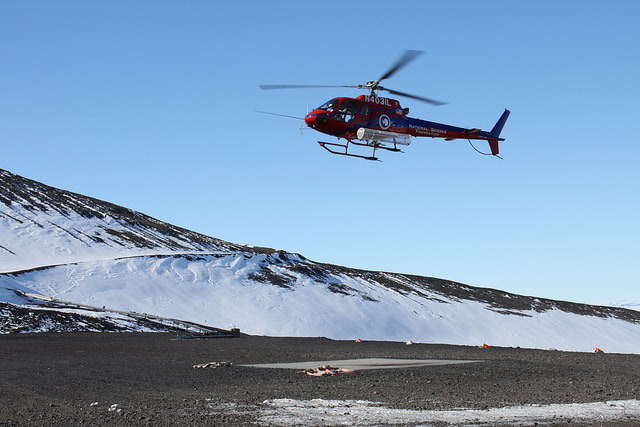Silence is a thing of the past. Just as no place has been left untouched by climate change, there is no place on earth that is not 'polluted' by the sounds of planes, ships, and cars. In Alaska's Denali State Park, as true a 'wilderness' as any other, the sound of an airplane engine can be heard around 80 times each day. In the ocean, marine mammals fight to be heard above the sound of and military sonar and ships' propellers. Whales and dolphins that live on shipping lanes exhibit elevated stress hormones. Songbirds, such as these robins, have adapted to sing louder to compete with traffic, or have switched to singing at night when the human population is asleep.
The last of the auditory wilderness disappeared in 1949. Scientists are now concerned that the sounds animals rely on for survival – the skitter of a prey species hidden in its burrow, the snaps and croaks of a coral reef – are being drowned out in the cacophony of the Anthropocene.

Atomic Geography
Naming our epoch the Anthopocene I think is one the right track, but not quite there. It is not so much that humans now have the defining impact on the earth, as it is that Human/Machine hybrids, Cyborgs, do. This would make this the Cyborocene.
Posted on